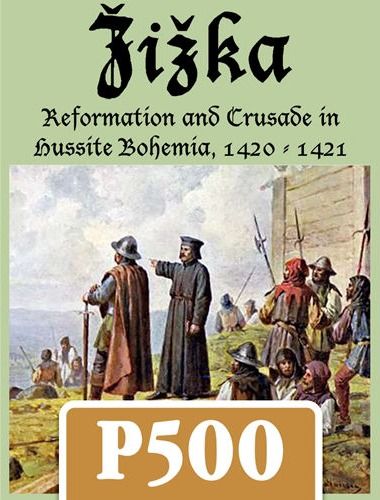|
Advertisement
|
Žižka: Reformation and Crusade in Hussite Bohemia, 1420-1421

DescriptionBohemia, 1420. The King was dead. Less and less able to resist the encroachments of higher nobility and ever more prone to leaving the matters of state in the hands of others, Wenceslas IV of Bohemia had passed away that previous August. Allegedly, a stroke killed him upon hearing the news of the defenestration in Prague of anti-Reformation councillors. Wenceslas’s brother Sigmund (or Sigismund) of Luxembourg, King of the Romans, expected to succeed to the Bohemian throne. The seemingly strong Catholics have challenges too. The number of crusaders joining the cause as well as the timing of the crusade are uncertain and the logistics daunting. Two mighty fortresses and a fortified hill complicate the struggle for control of Praha (Prague). —description from the publisher Game DiscussionsAdd CommentYou need to be logged in to comment. Insert Bullet List Please enter at least one item. Item: Item: Item: Item: Item: Insert Numeric List Please enter at least one item. Item: Item: Item: Item: Item: Insert Link Please enter the link of the website Optionally you can add display text Insert Email Please enter the email address Optionally add any display text Insert Image Please enter the link of the image Insert YouTube Video Please enter the link of the video Marketplace | ||||

Comments (0)